NYPD Nabs Lone Wolf
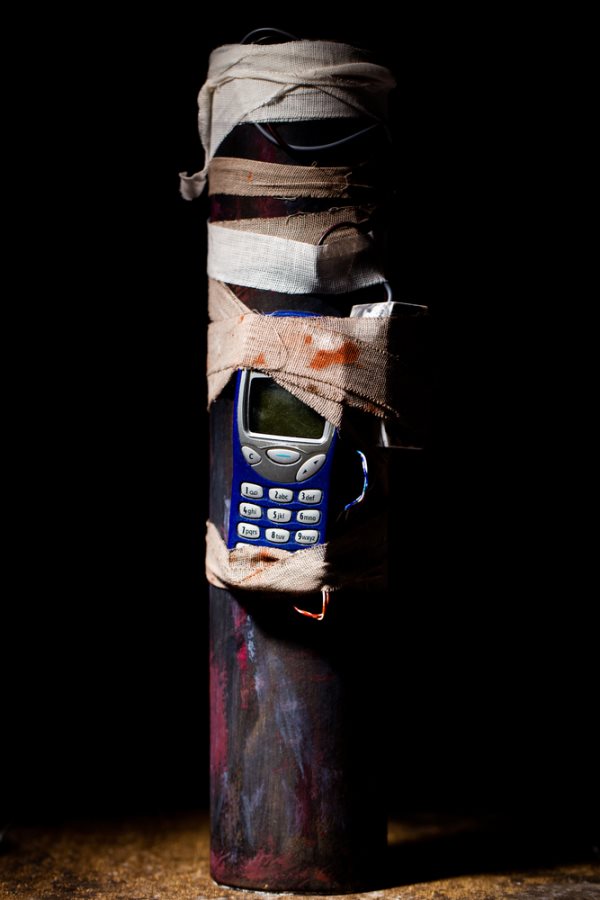



On November 20, 2012, Immigration and Customers Enforcement (ICE) reported that Amin Ravan of Iran was charged for conspiring to defraud the United States, smuggling, and violation of the Arms Export Control Act (AECA). He unlawfully exported 55 military antennas from the United States to Singapore and Hong Kong with intentions of bringing the antennas back to Iran.
The United States is currently trying to extradite Ravan from Malaysia for a trial in Washington. He faces up to 20 years in prison for violating the AECA, 10 years in prison for smuggling, and five years in prison for conspiracy.
The indictment alleges that Ravan tried to export military antennas from a company in Massachusetts from 2006 to 2007. Ravan was denied the purchase at first, but he soon worked with two co-defendants at a company called Corezing in Singapore. The defendants worked in a way that would deter transactional delays enforced by the Iran embargo. The antennas were eventually exported to Corezing in Singapore and Hong Kong in July and September of 2007. The antennas were purchased for $86,750.
Lim Kow Seng (Eric Lim) and Hia Soo Gan Benson (Benson Hia) are the co-defendants. The co-defendants were charged in a separate indictment for exporting the military antennas to Singapore and Hong Kong, and the United States is currently seeking their extradition from Singapore.
Ravan, Seng, or Benson never received a license from the State Department’s Directorate of Defense Trade Controls. The licenses were required to export the antennas from the United States to either country.
The investigation was led by ICE’s Homeland Security Investigations (HSI) in Boston, the FBI in Minneapolis, and the Office of Export Enforcement under the Department of Commerce in Chicago and Boston. Assistance was provided by the Department of Defense, Customs and Border Protection, the State Department’s Directorate of Defense Trade Controls, and the Justice Department.
Source: U.S. Immigration and Customs Enforcement
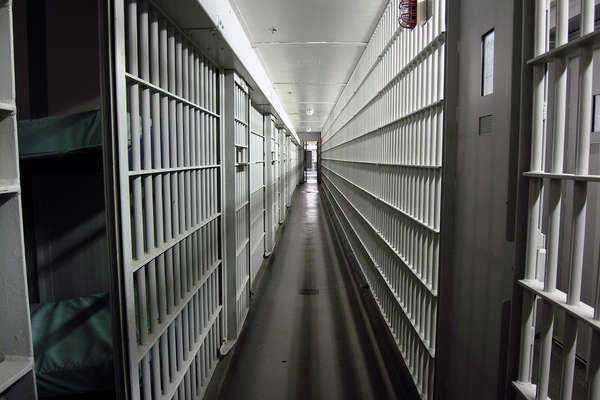
The rights of the accused are a specific category, or class, of civil and political rights that specifically apply to individuals who have been accused of a crime. The rights of the accused were a legal set of rights that have a philosophical heritage that dates back to the Enlightenment era. These rights are largely derived from the idea that an individual is “innocent until proven guilty.”
The rights of the accused come into effect when an individual is first arrested, although some of these commence as soon as an individual is taken into police custody. The rights of the accused continue throughout until the end of the trial, terminating, with two exceptions, at conviction or acquittal.
The rights of the accused that are in effect while in police custody or while awaiting trial are:
· The right of due process,
· Protection from Illegal searches and seizures
· The right to indictment before a grand jury,
· Protection against self-incrimination,
· Protections against being testified against by a spouse,
· The right to a fair trial,
· The right to a speedy trial,
· The right to a public trial,
· The right of habeas corpus,
· The right to a trial by jury, also known as the right to be tried by a jury of one’s peers,
· The right to notice of accusation, meaning the right to know the nature and cause of the accusation,
· The right to confront one’s accuser,
· The right to counsel,
· and protection against excessive bails, fines, and cruel and unusual punishment.
The protection against excessive bails, fines, and cruel and unusual punishment continues even after conviction. After acquittal, the accused gains protection against double jeopardy, meaning they cannot be charged twice for the same crime.

On October 16, 2012, Immigration and Customs Enforcement (ICE) announced that Chun Liu pleaded guilty in a District Court for the District of Columbia for operating an illegal gambling business. The investigation was led by ICE’s Homeland Security Investigations.
Liu is guilty on one count of conducting an illegal gambling business and one count of money laundering. He is scheduled for sentencing on January 24, 2013. Liu is subject to five years in prison for operating the illegal gambling business. The maximum sentence for money laundering is 20 years. ICE reports that Liu will likely receive 12 to 18 months in prison once he is sentenced.
Liu has agreed to forfeit $255,320 as part of the plea agreement. The amount represents the total proceeds he gained from operating the illegal gambling business. Law enforcement seized more than $230,000 in cash when they searched the property in September of 2011, and the seized money will go towards the amount Liu is forfeiting.
Court documents indicate that Liu and others were operating a total of three illegal gambling businesses throughout Chinatown in Washington, D.C. The illegal gambling occurred from March 2007 to October 2011.
Throughout March to December in 2007, Liu managed an illegal gambling business on the 800 block of Sixth Street NW. He then moved the establishment and allowed illegal gambling from April 2009 to December 2009 on the same block. He moved the illegal gambling business a third time to the 500 block of H Street NW and operated the business from February to March of 2010. He moved the illegal gambling business one more time to the original property on Sixth Street NW.
The illegal gambling was open continuously from 9 a.m. to 4 a.m., and Liu used the proceeds to make rental payments, make payments on his Mercedes, and pay other bills as well.
Source: U.S. Immigration and Customs Enforcement
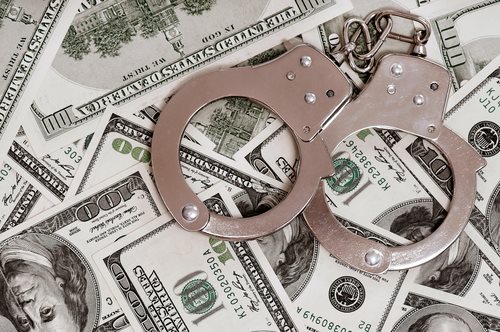
On October 17, 2012, the US Attorney’s Office for the Western District of Virginia announced that James Louis Whittlesey was sentenced for five counts of aggravated bank robbery, two gun charges, and one count of attempted escape. Whittlesey is a violent and serial offender. He robbed five banks in three different states, shot a gun at a police officer, fled the country, and even tried to escape federal custody.
Whittlesey’s crimes began on July 19, 2011 at the M&T Bank in Fawn Grove, Pennsylvania. He brandished a revolver and demanded money from the tellers. Then, on July 27, Whittlesey robbed a Citizen’s Bank in Willow Street, Pennsylvania. He pointed the revolver at the tellers and told them he’d kill them if they tampered with the money.
The next crime occurred on August 12 at the M&T Bank in Wilmington, Delaware. During the robbery, he brandished the revolver again, gave a duffel bag to the teller, and said, “No change, big bills, no BS.” The fourth robbery occurred at the M&T Bank in Lemoyne, Pennsylvania on October 7. The flashed the revolver and demanded large bills.
The last robbery occurred on October 14 in Winchester. After he received the money, he was approached by police when he left the bank. He fired several shots at a police officer before fleeing in a vehicle. He ditched the vehicle and avoided apprehension by hiding in a drainage pipe. Whittlesey hitchhiked to Interstate 81, traveled to Maryland, stole a car, and then drove to Vermont. He crossed the border into Canada—presumably on foot—and was arrested in Montreal on December 11.
U.S. Attorney Timothy J. Heaphy stated, “Mr. Whittlesey is a violent, desperate man whose crime spree endangered communities up and down the East Coast. Today’s sentence is a harsh but just result for someone who brazenly fired at a police lieutenant in Winchester, Virginia, and then fled to Canada.”
Source: Federal Bureau of Investigation
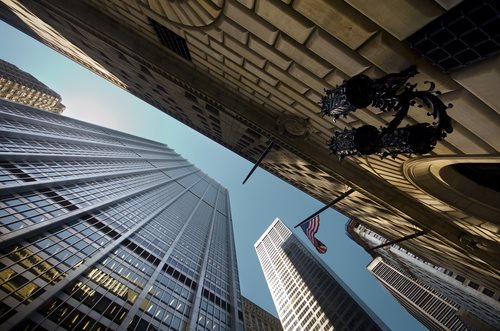
There was a ghostly feeling in New York City yesterday on October 16, 2012. The U.S. Attorney’s Office for the Eastern District of New York announced that the FBI was successful in thwarting the attempted bombing by Bangladeshi national Quazi Mohammad Rezwanul Ahsan Nafis (Nafis). The man, with suspected ties to al Qaeda, attempted to build a 1,000 pound bomb and detonate it next to the New York Federal Reserve Bank in lower Manhattan.
Court documents indicate Nafis planned to take out several high ranking officials and the New York Stock Exchange, but he ultimately decided to bomb the Federal Reserve Bank because he believed the best way to “destroy America” was to target its economy.
While the plans were just beginning on U.S. soil, Nafis was approached by an FBI undercover agent who acted as an al Qaeda member. The undercover agent supplied Nafis with between 20 and 50 pound bags of fake explosives, and Nafis constructed a bomb after he bought other detonating devices and conducted surveillance in lower Manhattan.
On the morning of the attempted bombing, Nafis met with the agent and they began to drive to a warehouse in the Eastern District of New York. He explained he had a second plan in case the police were trying to stop the bombing. When they arrived at the warehouse, Nafis attempted to make a 1,000 bomb out of fertilizer. He loaded the material in the van and the drove to New York Federal Reserve Bank.
During the drive, he armed the device and eventually parked the van next to the Bank. Nafis and the undercover agent walked across the street to a hotel where Nafis then recorded a video statement that stated, “We will not stop until we attain victory or martyrdom.” He tried to detonate the bomb by using his cell phone, but the attempted detonation was unsuccessful. He was arrested immediately.
Nafis is charged with attempting to use a weapon of mass destruction and attempting to provide information to al Qaeda.
FBI Acting Assistant Director in Charge Mary E. Galligan stated, “It is important to emphasize that the public was never at risk in this case, because two of the defendant’s ‘accomplices’ were actually an FBI source and an FBI undercover agent. The FBI continues to place the highest priority on preventing acts of terrorism.”
Source: Federal Bureau of Investigation
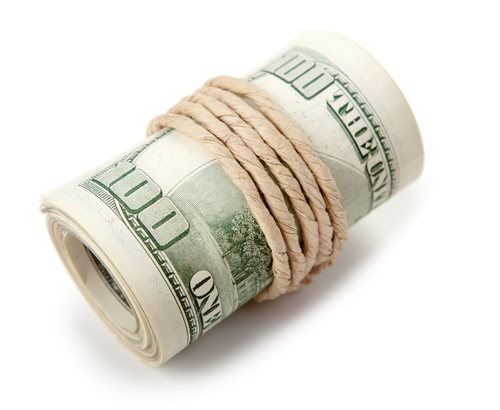
On October 18, 2012, the US Attorney’s Office for the Western District of Texas announced that federal authorities arrested Maverick County Commissioner Rodolfo Heredia and two other defendants for money laundering and a bulk cash smuggling scheme.
The scheme occurred when a vehicle was sold to a known member of the Los Zetas Drug Trafficking Organization in Eagle Pass, Texas.
The indictment has charged Heredia, 54, Jose Luis Aguilar, 62, and David Gelacio, 28, with one count of conspiracy to commit money laundering, one count of aiding and abetting money laundering, one count of conspiring to commit bulk cash smuggling, and one count of aiding and abetting the smuggling of bulk cash.
The indictment describes the incident that occurred on January 4, 2011. Heredia and Aguilar traveled to a ranch in Mexico that is owned by a member of the Los Zetas Drug Trafficking Organization. Heredia sold his Ford F-250 King Ranch truck for $13,000. Aguilar was then given $7,000 and Gelacio was given $6,000. The two men concealed the money as they crossed the Eagle Pass Port of Entry, and the two men returned the funds to Heredia while keeping a percentage for smuggling the cash.
Each of the men faces a maximum penalty of 20 years in prison for each money laundering charge. Each face a maximum penalty of five years in prison for each bulk cash smuggling charge. Each of the men is being held in detention until their hearing on October 23, 2012 at 1:30 p.m. in front of U.S. Magistrate Judge Collis White.
The Federal Bureau of Investigation, the Drug Enforcement Administration, and the Texas Department of Public Safety investigated the case. The case is being prosecuted by Assistant United States Attorney Michael Galdo.
All of the defendants are presumed as innocent until proven guilty.
Source: Federal Bureau of Investigation
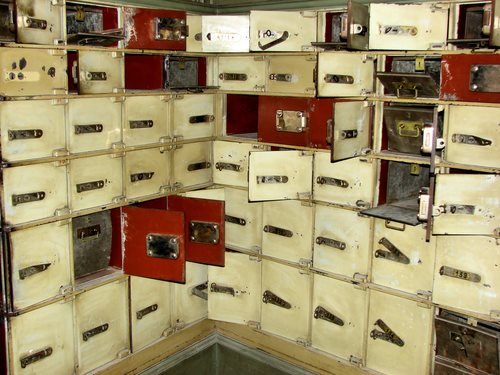
On October 10, 2012, the US Attorney’s Office for the Northern District of Illinois announced that a second defendant was arrested for the armed robbery that occurred in May 2011 at the TCF Bank branch in south Palos Heights. The defendant’s name is Lyndon Germel Wesley, and he is from Markham. He appeared before U.S. Magistrate Judge Michael Mason today at 2:30 p.m.
The first defendant, Navahcia Edwards, was arrested in June of 2011.
The crime occurred on May 29, 2011 at the TCF Bank on 6410 West 127th Street in Palo Heights. The two defendants were carrying handguns and wearing what is called “Nuns on the Run” costumes. They also wore masks that looked like elderly women.
During the bank robbery, the two defendants forced the employees at the bank to open the vault. They then placed about $120,200 of cash in a gym bag and the tied the bank employees up with zip ties. They exited the bank and fled in a vehicle.
According to court documents, Edwards worked as a teller at the same bank between July and November in 2010. Wesley also opened a safe deposit box at the same bank about a month before the robbery on April 25, 2011.
The defendants face a maximum of 25 years in prison. Conspiracy to commit bank robbery carries a maximum sentence of five years in prison and a fine up to $250,000. Bank robbery carries a maximum sentence of 20 years in prison and fine up to $250,000.
The indictment is also asking for a forfeiture of $120,200.
The case is being prosecuted by Assistant U.S. Attorney Kate Zell. The U.S. Attorney’s Office, the Federal Bureau of Investigation, the Palos Heights Police Department, and the Cook County Sheriff’s Police all assisted with the investigation.
Source: Federal Bureau of Investigation

On October 11, 2012, the US Attorney’s Office for the Southern District of Texas announced that 25 members of the feared Texas Mexican Mafia prison gang were indicted for trafficking heroin, cocaine, and methamphetamine. They are also charged with firearms violations and the distribution of explosive materials.
One of the charged defendants is Michael Mares who is also an Onalaska Police officer. He was found to have provided firearms to convicted felons on numerous occasions.
The following defendants were taken into custody around the Houston area: Robert Arechiga, Alexander Garcia, Adam Guzman, George Maldonado, Jorge Montemayor, Juan Sarmientos, Tony Valdez, and Michael Villarreal. Ruben Esparza was arrested in the Corpus Chrisi area. Jose Cerda and Michael A. Villarreal were arrested around the San Antonio area, and Francisco Galvan was arrested on the Texas-Mexico border.
Carlos Romero, Gilbert Gonzalez, and Enrique Bravo are fugitives in the case and are considered dangerous. If you have information about the fugitives, you need to contact the FBI at 713-693-5000.
The remaining defendants have been taken into custody. They are Juan Deluna, Johnny Reyes, Ricardo Sanchez, Valentin Ayala-Guiterrez, Ernesto Villarreal, Eric Gomez, Armando Villarreal, III, Rene Gonzalez, and Alvin Valadaz.
According to the indictment, the defendants conspired from 2008 to October of 2012 in order to obtain and distribute the illegal drugs around Texas. Some of the members are believed to have illegally sold assault rifles, numerous other types of guns, and a detonation cord. The arrests were made after an investigation that lasted four years.
All of the defendants face a minimum mandatory sentence of 10 years in prison and a $10 million fine. All of the other counts carry equal or lesser possible sentences.
The case is being prosecuted by Assistant United States Attorneys Tim S. Braley and Mark Donnelly.
Source: Federal Bureau of Investigation